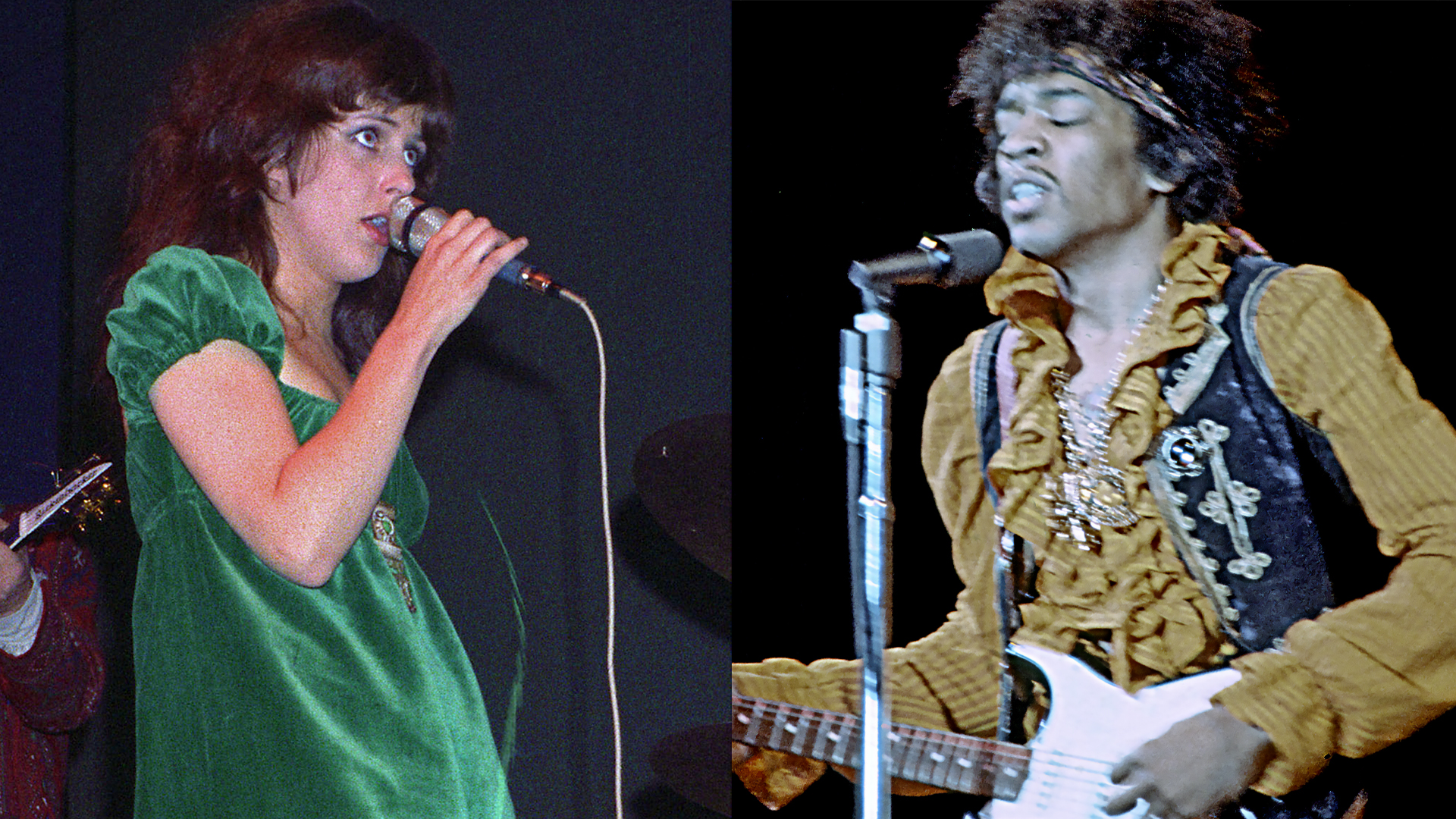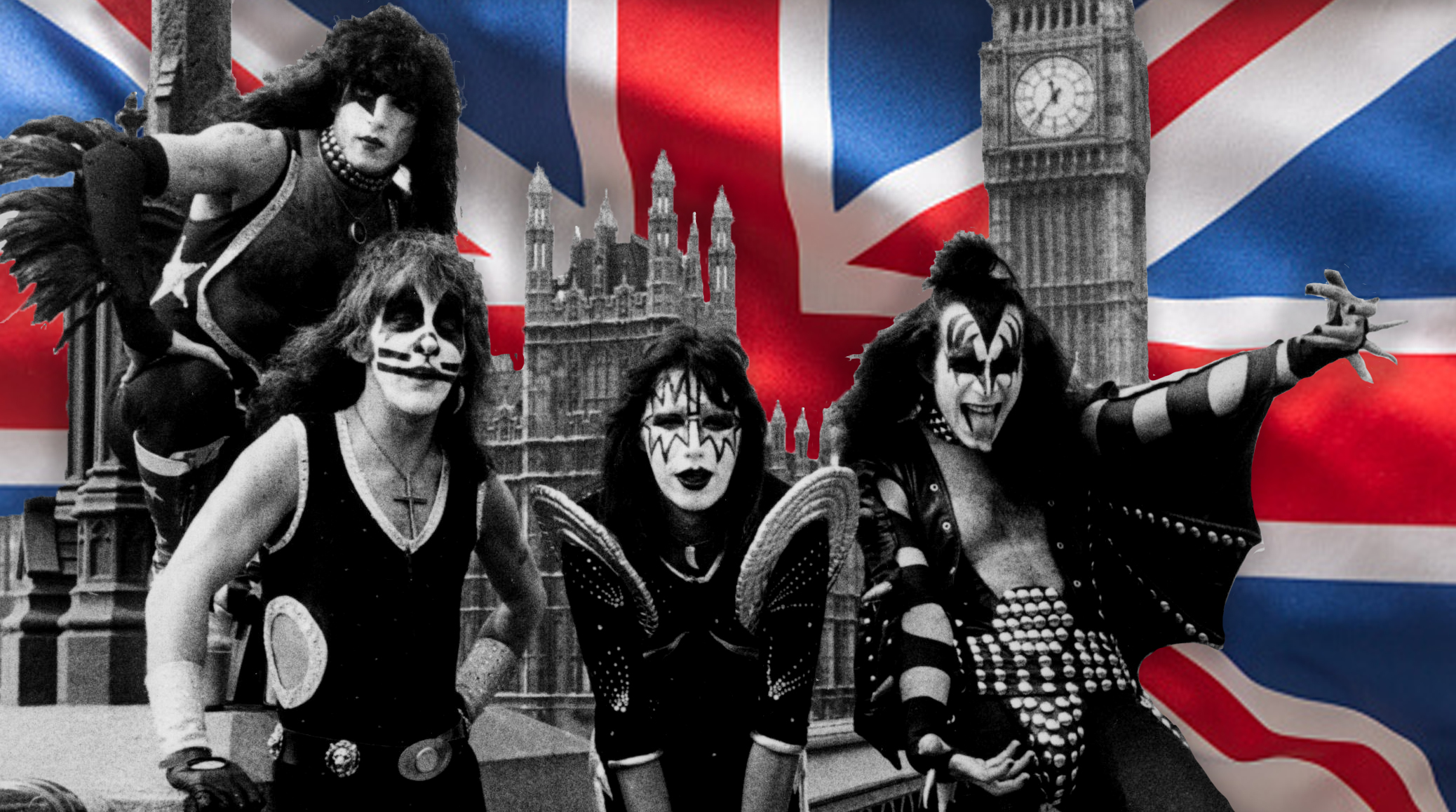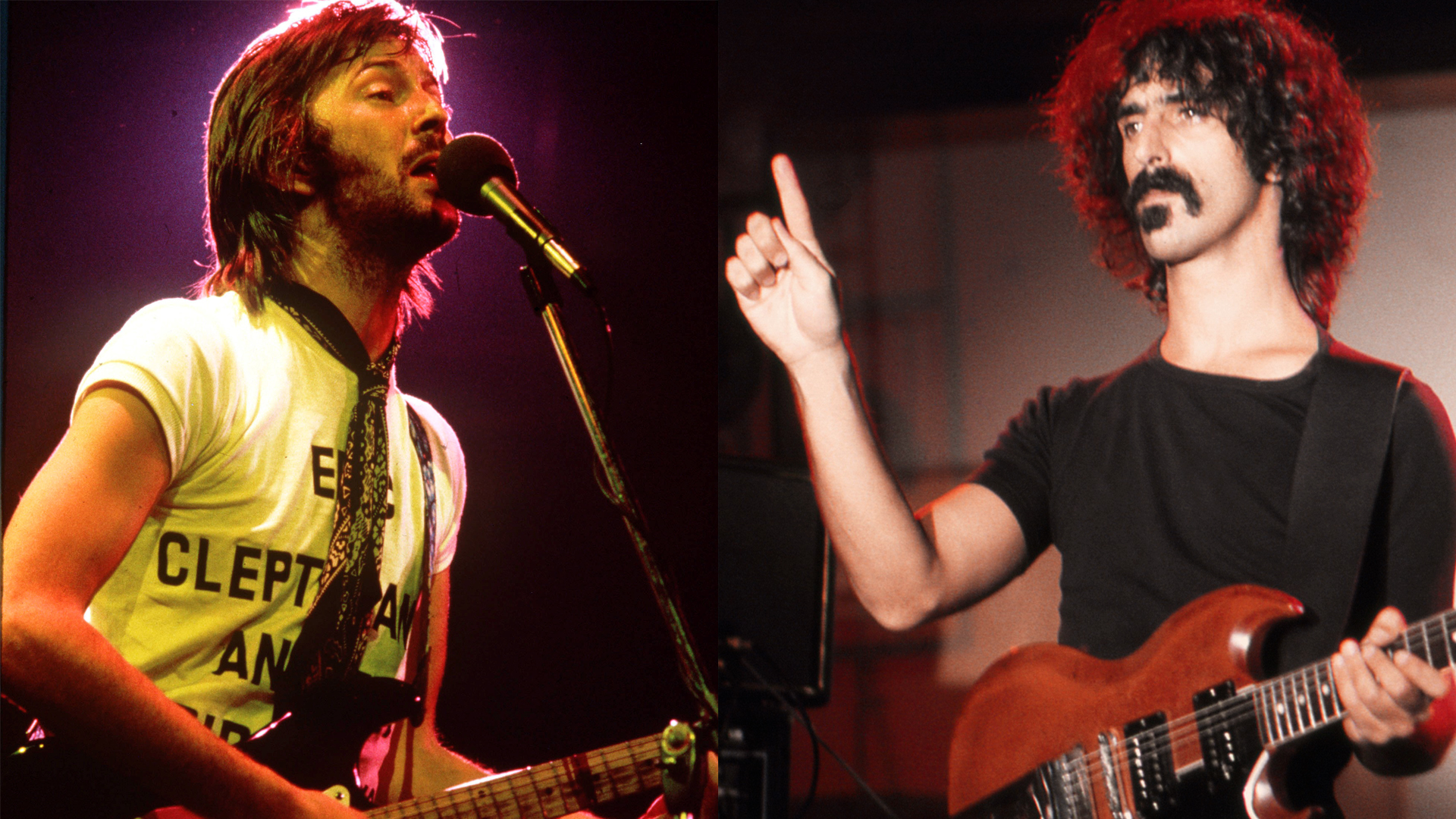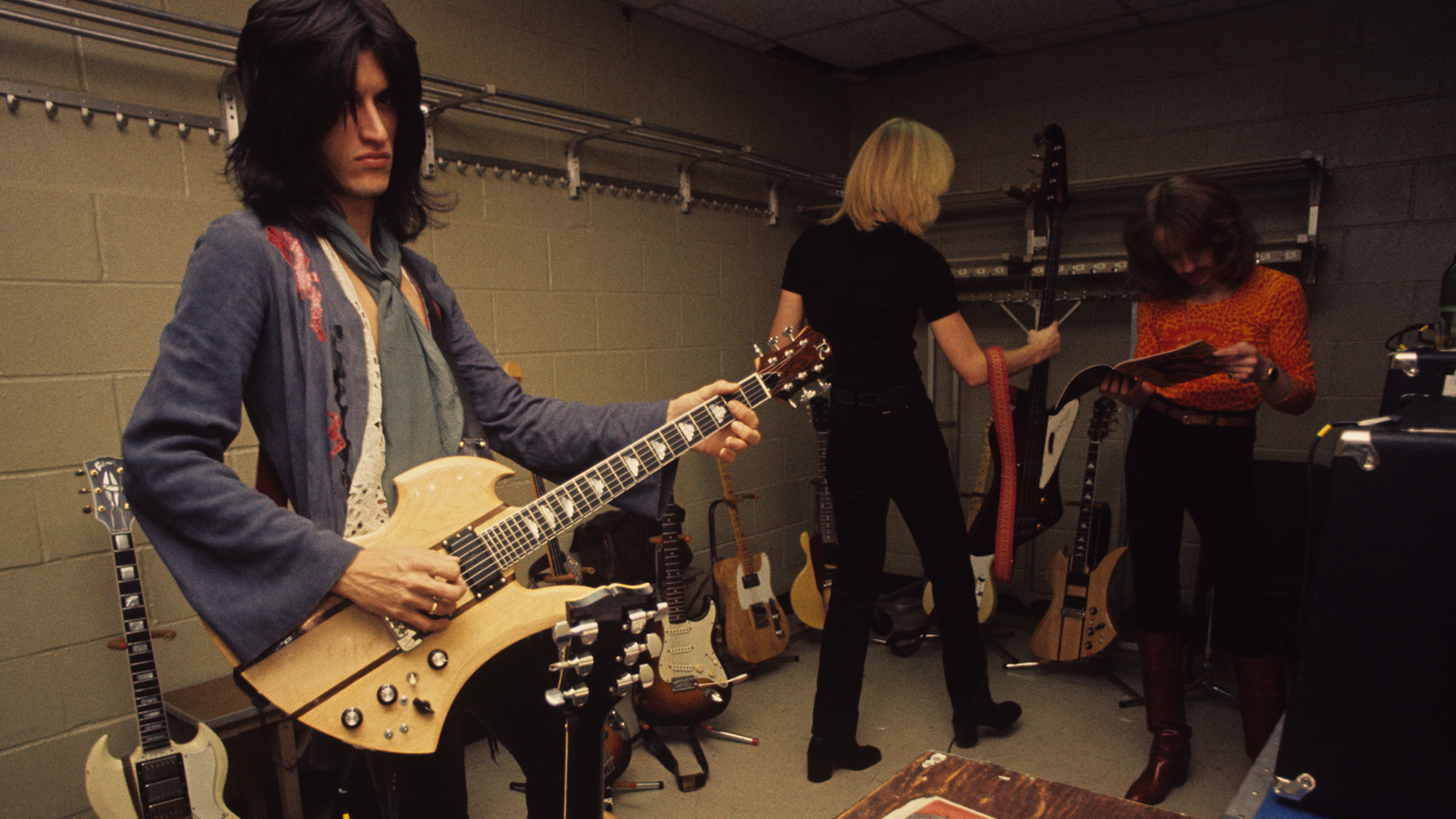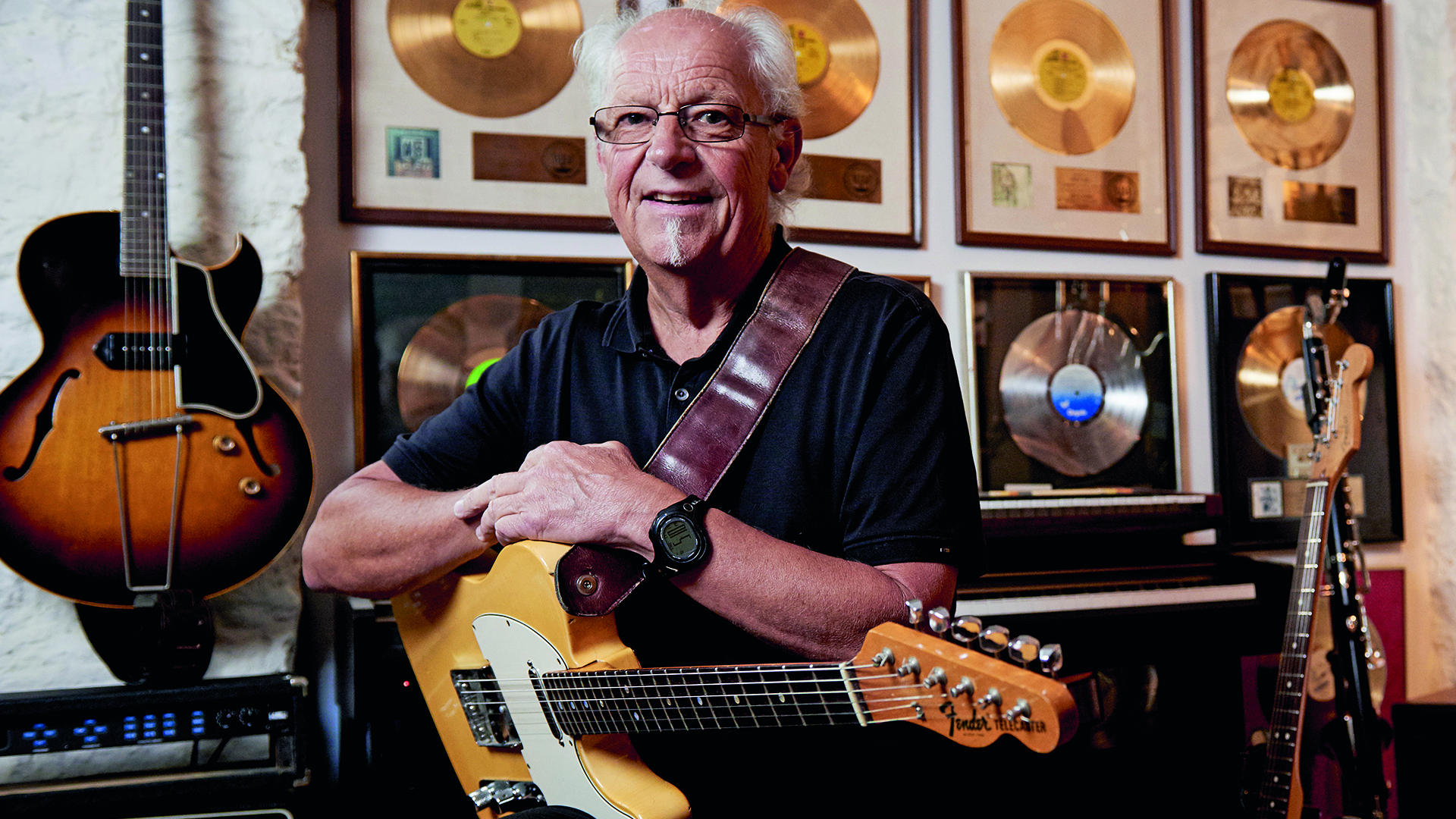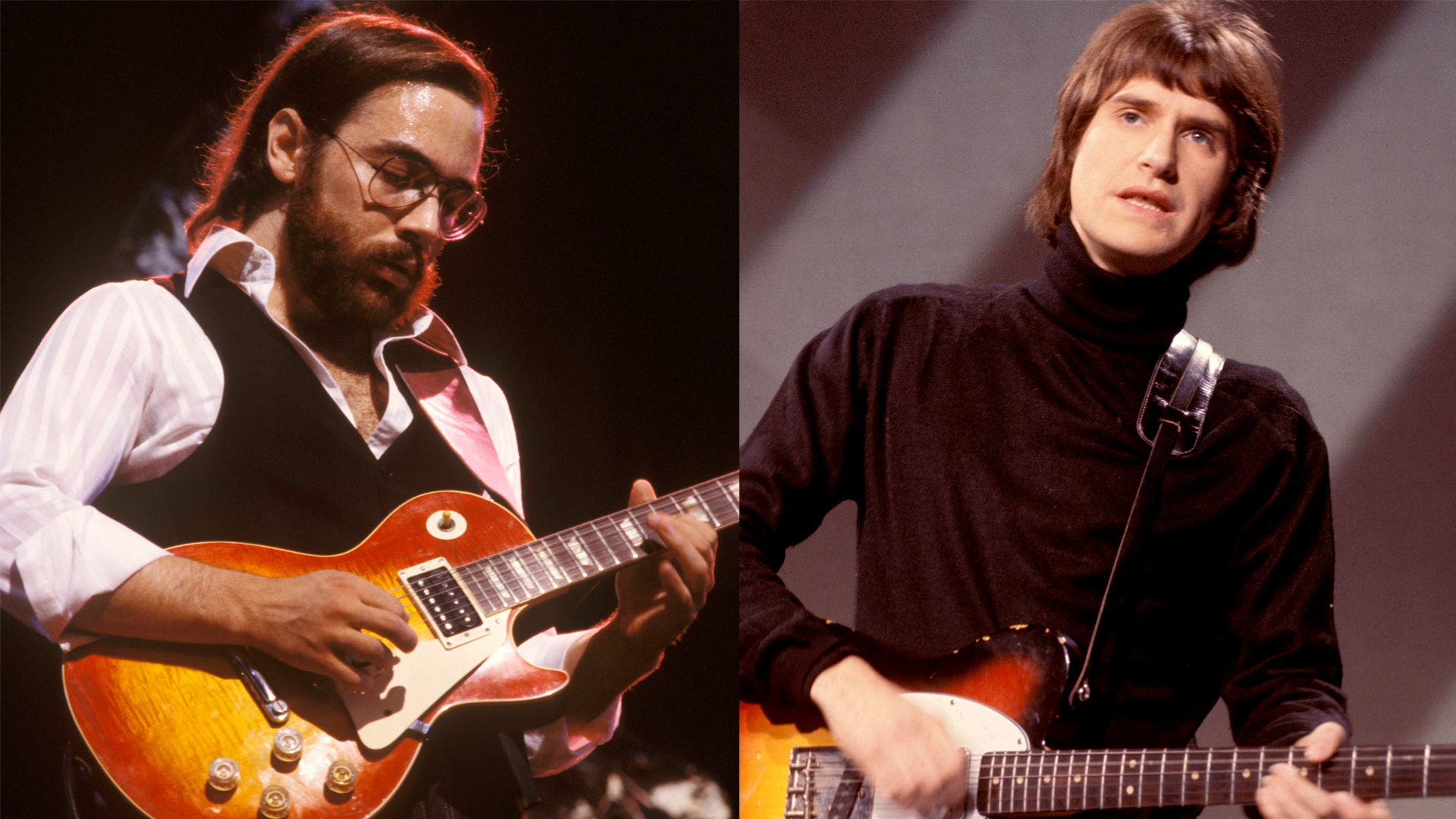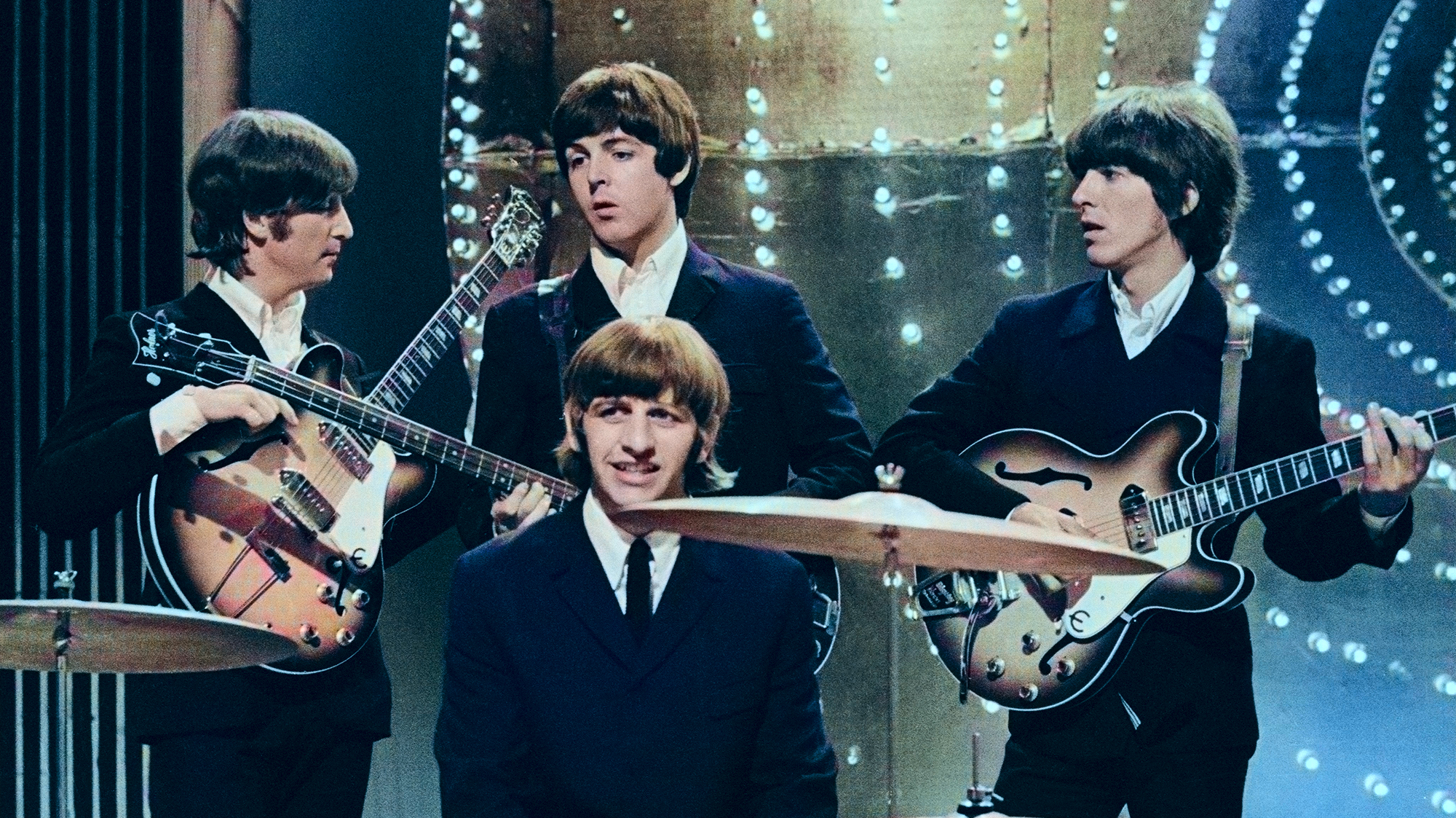"I thought, Wow, what an effective thing to do! And I learned it directly from him.” Alex Lifeson reveals the technique he stole from Rory Gallagher during their time together on the road
The two guitarists became close friends over a pair of tours. Says Lifeson, "To see him lose himself in his guitar playing was truly remarkable"

Rush were progressive-rock pioneers, but beneath the layers of mind-boggling time signature changes and maze-like song structures, they were a blues band. And for guitarist Alex Lifeson, few blues guitarists captured his imagination like Rory Gallagher did.
Lifeson says Eric Clapton was another he’d obsess over in his early playing days, citing Slowhand's work on Cream's "Spoonful" as the first guitar solo he ever learned to play. Jimmy Page was another — Lifeson said “he was everything I hoped he would be,” when the pair finally crossed paths.
But Gallagher holds an extra special place in his heart.
Lifeson says he stumbled upon the Irish guitarist's work when Gallagher was in Taste, his pre-solo career outfit. He recalls being “really impressed” by what he heard.
“It was blues-based,” Lifeson tells the Gallagher's YouTube channel. “But he was in a lot of ways a great rock guitarist. He had so much energy in his playing; he wasn't a typical blues player.
“His style,” he adds, “was all of his own. It was a reflection of his soul, truly. And his vocals and guitar playing together made for this really, really special thing that very few people have.”
Before Rush were selling out arenas, they were cutting their teeth as a support act alongside heavy hitters like Aerosmith, Thin Lizzy, and — perhaps most strangely — Kiss.
Get The Pick Newsletter
All the latest guitar news, interviews, lessons, reviews, deals and more, direct to your inbox!
The Canadian outfit released their debut record in March 1974, and by that fall were embarking on their first-ever tour as the opener on a three-band bill headlined by Gallagher.
“Playing with Rory was a real treat,” Lifeson reminisces. “In the fall of 1974, we were 20 years old — this was our first tour. It was exciting, but we didn't know our place. We were trying to stay in the background and be as polite as possible and not be a bunch of dicks basically.
“Right from the get-go, Rory and the band were so hospitable and accommodating,” he continues. “I would watch Rory every night and go back to the dressing room and just play. I was so inspired.
"Honest to god, his soul was just amazing. To see him close his eyes and lose himself in his guitar playing was truly remarkable. There's a purity to it.”
Fast forward six years and the tables had turned. The success of Moving Pictures' — today regarded as one of the greatest prog albums ever made — had catapulted Rush to the top of the bill. This time, Rory would support them.
“Things were really going gangbuster for us, and there was an offer of Rory to open for a tour, and we were absolutely all over it,” Lifeson says smiling. “That's when I really got to know him. We spent a lot of free time together. On a day off we would sit and talk for hours, and maybe drink a little bit too much.”
Family and politics became two bonding points. Gallagher spoke about growing up during the Troubles in Ireland, while Lifeson, of Yugoslavian heritage, saw parallels with the struggles his ancestors faced. Hearing this, Gallagher bought him a copy of Irish novelist Flann O'Brien's The Third Policeman.
“He said, ‘You've got to read this. He's a great satirist. It gives you an eye for that Irish humor!’ I read the book and I got back to him days later, I guess, and said I really enjoyed it.
“We had a bit of a break,” Lifeson continues. “He went back to Ireland and then came back to North America and bought me the whole series of books.
“It wasn't just about the music. He was so thoughtful and considerate to other people. He was such a wonderful person. Never mind his talents and skills, he was just a really great man”

Lifeson drew influence from Gallagher “from a very early time,” and says he was “honored” to have spent two tours with his idol. That first tour, in 1974, proved particularly fruitful for a young Lifeson, during which he learned one key trick from Gallagher that was subsequently heard all over Rush's extensive back catalog.
“He had this way of getting harmonics from a guitar pick by just picking in a certain way and I'd never heard anyone do that ever. I heard it all over his stuff,” he reflects. “And I thought, Wow, what an effective thing to do. I employ the little trick in all my stuff all the time, and I learned it directly from him.”
While Lifeson doesn't elaborate on this point, Gallagher's technique was pinch harmonics, a picking style which Leslie West, as he revealed to Guitar Player in 1972.
Gallagher passed in 1995 and his gear had been under the charge of his family, who loaned it to museums and musicians, up until last year. There was outrage at first when the Gallgher family announced the sale of his iconic, time-beat ‘61 Stratocaster, with campaigns launched to keep it in Ireland as a symbol of the country’s cultural heritage.
It sold for a staggering $1.16 million and was then donated to the National Museum of Ireland, where it is expected to remain.
The Irish blues icon was honored with a statue in Belfast, Northern Ireland earlier this year. However, one key detail appeared to be wrong.
Meanwhile, Alex Lifeson is busy with his Lerxst gear brand. He recently reissued his famous Hentor Sportcaster as the Grace. In April, he will also release his second album with his new band Envy of None.
A freelance writer with a penchant for music that gets weird, Phil is a regular contributor to Prog, Guitar World, and Total Guitar magazines and is especially keen on shining a light on unknown artists. Outside of the journalism realm, you can find him writing angular riffs in progressive metal band, Prognosis, in which he slings an 8-string Strandberg Boden Original, churning that low string through a variety of tunings. He's also a published author and is currently penning his debut novel which chucks fantasy, mythology and humanity into a great big melting pot.
“We’d heard Jimi Hendrix, we'd heard the Who, but now we finally got to see these guys. And watching Jimi Hendrix burn his guitar….” Grace Slick on Hendrix at Monterey, Jefferson Airplane and the Spanish origins of “White Rabbit”
“I’m still playing but I’m covered in blood. Billy’s looking at me like, ‘Yeah! That’s punk rock!'” Steve Stevens on his all-time worst gig with Billy Idol — and the visit to Jimi Hendrix's grave that never happened



